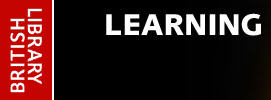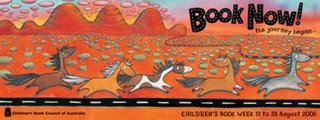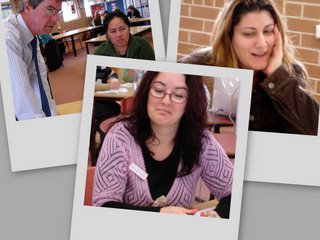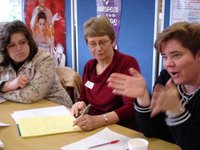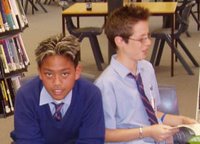
Susan H has been working hard at her College! Here's her report.
Reading Cafe launched.
Each fortnight our Library becomes a hive of reading activity as students from years 7-10 share book titles, reading experiences, read, eat their lunch & have a drink & sweet treat provided by the library.
The gains in literacy, confidence and having a good time are already evident within most English classes & certainly in fiction borrowing in the library generally.
The CEO Literacy Book Week Grant 2006 will certainly further add to our fiction collection, as most members of the Reading Cafe have provided wish lists of book titles.

We also hope to be able to get visiting Authors such as Catherine Jinks, Stephen Herrick and Morris Gleitzman to speak to the students at lunch.
Booksellers such as Bloomin' Books Kate and Jenny from Megalong Books at Leura are coming to speak to the students.
Short book reviews are going to be published from the Cafe on the school intranet.
The photos show the students catching a bit of the reading pleasure, even an artistic Year 12 student has got involved by designing Thelma, our Reading Cafe Mascot.



